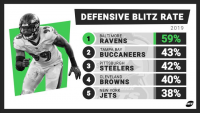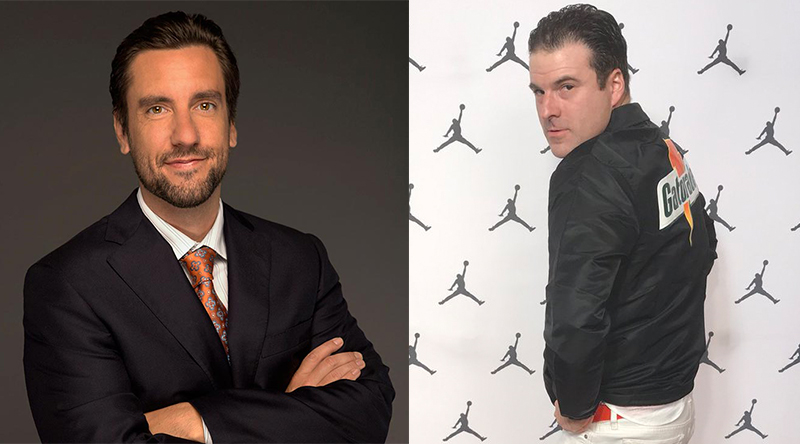This article addresses the potential scenario (including the salary cap implications):
******************************************************************
The CBA doesn’t actually have a lot to say on the topic. What it does have to say is buried in one of the longest articles of the Agreement — Article 12 — which deals with revenue and salary cap. To find the relevant passage, we go to Section 1 a(xii):
Cancelled Games. If one or more weeks of any NFL season are cancelled or AR [All Revenues] for any League Year substantially decreases, in either case due to a terrorist or military action, natural disaster, or similar event, the parties shall engage in good faith negotiations to adjust the provisions of this Agreement with respect to the projection of AR and the Salary Cap for the following League Year so that AR for the following League Year is projected in a fair manner consistent with the changed revenue projection caused by such action.
This is identical to the wording of the 2011 CBA, except that in the 2011 document this was Section 1a(xi), and the there was one additional sentence related to specifically to the 2012 & 2013 seasons.
So, this is not a
new provision of the CBA, but because of the COVID-19 situation, we face the very real possibility of the NFL being forced to cancel some, or even all, of the 2020 games.
That raises a couple of questions.
First of all, if some or all of the 2020 games are cancelled, will the players still get paid?
There are some answers that we don’t get until they are decided in a court of law or by an arbitrator, and this might be one of them if worse comes to worst, but the NFL owners probably don’t have much of a case if they try not to pay players due to cancellation of games.
The reason is that
there is no force majeure clause in the CBA.
What is force majeure?
I’m glad you asked. The subject I enjoyed most during my 4 years of studying business administration and management at VCU was Business Law, and one of the concepts I learned in that course was
force majeure. I don’t think I’ve had the opportunity in the intervening 39 years to make use of my knowledge of the concept.
I found
a pretty useful explanation of it online:
By way of example, let’s cast our minds back to 2005, when Hurricane Katrina hit New Orleans in August. Let’s imagine that in July of that year, a contractor agreed to build an outdoor patio at a client’s home in the city. Work was scheduled to begin in late August.
Katrina hit, greatly damaging the client’s home, leaving New Orleans flooded, and the contractor unable to do the work. Assuming the contract has the relevant clause, under the principles of
force majeure, the contractor is no longer bound by the contract to perform the work, and the client is no longer required to pay the money stipulated in the contract — at least they won’t have to do so within the specified time frames. Depending on the wording of the clause, then the contract may be void due to “an act of God”.
Force Majeure.
Because the NFL Collective Bargaining Agreement has no
force majeure provision, there seems to be little argument whether the owners need to pay the players if the games are not played. With no
force majeure clause in the CBA, the owners should be held to the terms of the agreement; that is, they need to pay the players as long as the players make themselves available to play the games.
The owners could argue that the principle of
force majeure should be applied, but since there is no f
orce majeure clause in the CBA they would be on shaky ground. Here’s
what the National Law Review website has to say on the subject:
Courts typically construe force majeure clauses narrowly.
Under the law of many states, including New York and Texas, the force majeure clause will be triggered only where the clause expressly includes the contingent event. Where a force majeure clause explicitly uses terms such as “disease,” “epidemic,” “pandemic,” “quarantine,” “act of government” or “state of emergency,” parties may, depending on the circumstances, be able to assert force majeure as a defense to non-performance or anticipatory breach in the case of the COVID-19 pandemic.
Notably, it is not enough for the party asserting the force majeure clause to show that the “act of God” or other event made performance merely more difficult or more economically burdensome; the party must show that performance of its contractual obligations has been prevented by the event. Taking precautionary measures or making a voluntary decision not to perform is not the same as being prevented from performance.
This tells us that, having not included a
force majeure clause in the Collective Bargaining Agreement means that the NFL and the players’ union have not agreed to any contractual relief in the case of an “Act of God” or similar
force majeure event.
Force majeure in any given situation is controlled by the law governing the contract, rather than general concepts of force majeure. The owners cannot, on the basis of general principle then, use the cancellation of games as a reason to refuse to pay players.
The controlling law is sometimes specified in the agreement, in which the parties state which law(s) will be used in enforcing the contract. However, if the law is not specified in the agreement itself, then it is decided by a statute or principals of general law which apply to the contract. The CBA is governed by Federal Labor Law. I spent a few minutes looking, but didn’t find any specific guidelines for the application of
force majeure under federal labor law. I assume that there are no surprises, and that with no
force majeure clause in the CBA, the owners are obligated to pay the players according to their individual contracts, even if some or all of the games are cancelled, which is not the same situation faced by NBA and MLB owners.
THE WHOLE STORY






